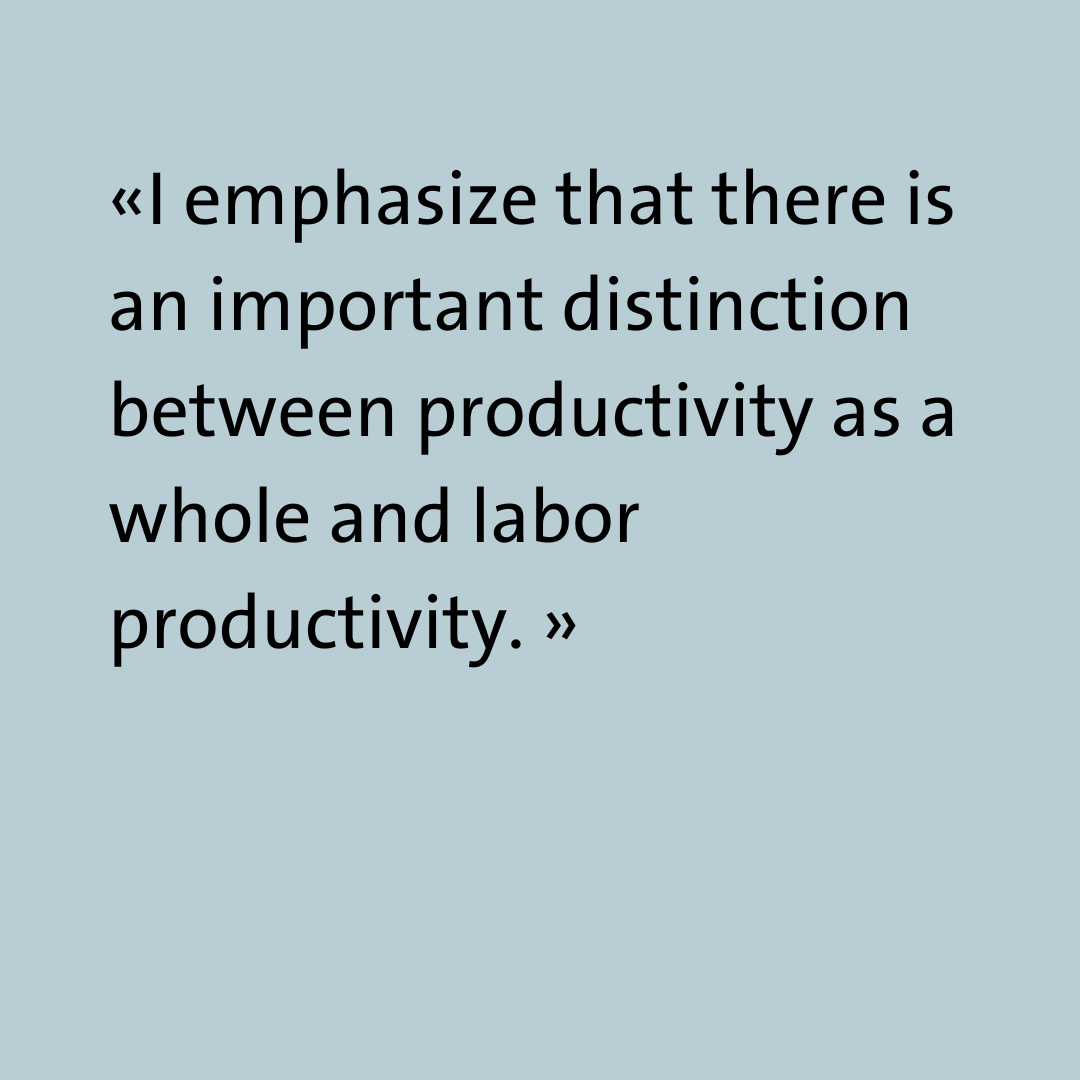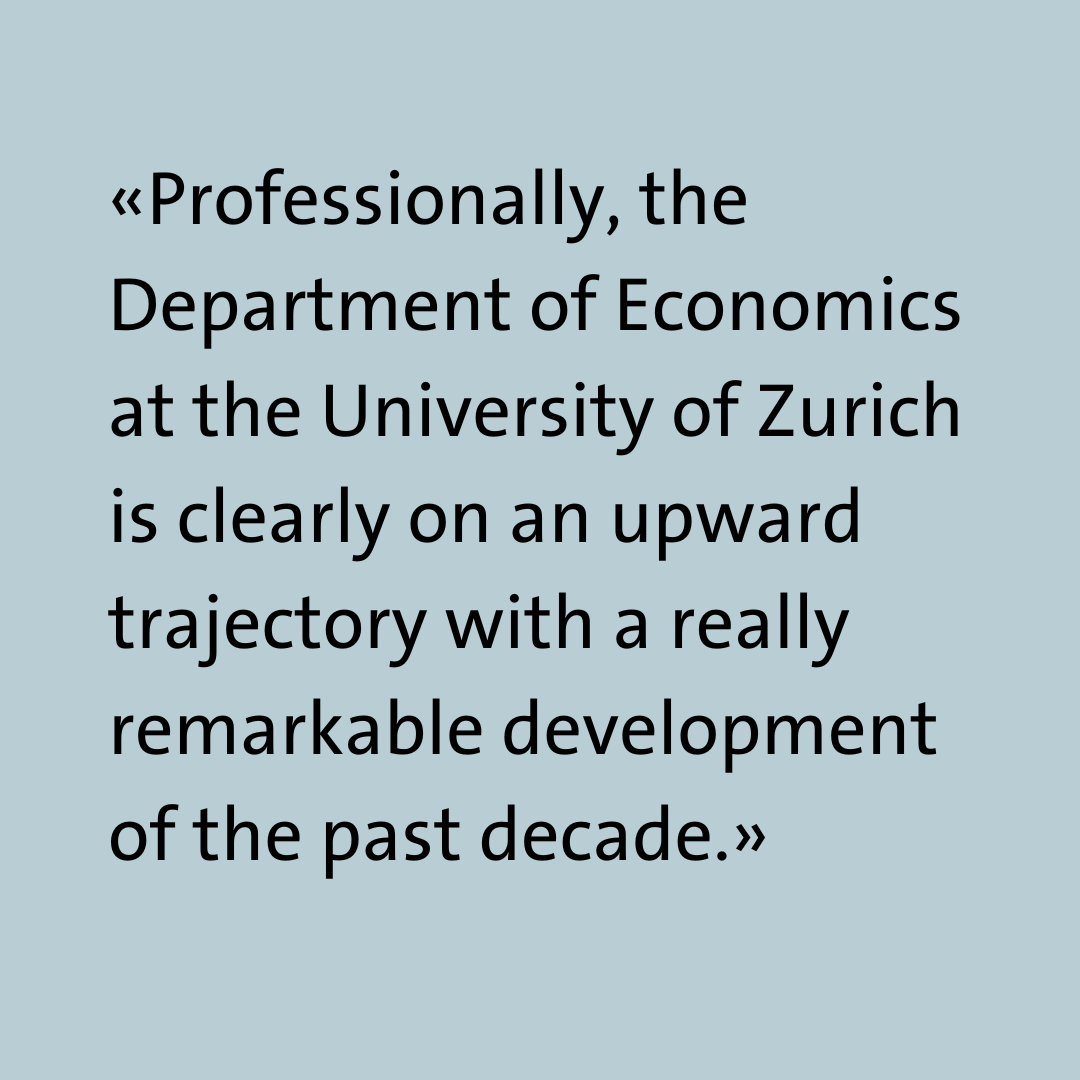Navigation auf uzh.ch
Navigation auf uzh.ch
Timo Boppart joined the Department of Economics as Professor of Macroeconomics and Political Economy. Boppart’s research work focuses on the field of economic growth, firm dynamics, labor supply and development.

What are the topics you are currently working on?
I have broad research interests in macroeconomics. At the moment, I am mainly working on the following topics: (i) the interplay between firm dynamics and growth where I explore which companies are responsible for driving overall economic growth; (ii) the topic of macroeconomic development where I study the role of the agricultural sector and its factor intensification to explain why income levels vary across countries; and (iii) the topic of labor supply where I ask the question who will and should still work in the future.

What is the main finding of this work?
Let me select the work on macroeconomic development to go into more details: Labor productivity differences in agriculture are very large across countries---much bigger than cross-country income differences. This, together with the fact that poor countries still employ a lot of workers in agriculture, seems to suggest that agriculture is key to understand income level differences. However, in my work I show why such a conclusion might be wrong. I emphasize that there is an important distinction between productivity as a whole and labor productivity. A big part of labor productivity differences across countries is due to differences in capital deepening and intermediate inputs use. US agriculture is in parts so highly productive because a lot of fertilizer and machinery is used per worker. Why do the poor countries then not apply the same factor intensification? Since different sources of production can be easily replaced with each other, I argue that the difference in prices we see can to a large extend the rationalisation of the different factor intensification uses across countries without any further distortions. Low-cost and abundant labor lead to a more labor-intensive agriculture in poor places and this results in low agricultural labor productivity. This low labor productivity is however just a symptom showing up in agriculture but originating in low productivity in other industries, such as the manufacturing sector. Low total factor productivity in the agricultural is not necessarily the only a country may be poor.
Is there another important paper of yours that you would like to mention?
I have another line of work on inflation measurement. There I use French, Swedish and US micro data to quantify biases arising from mismeasuring the quality improvement of products and to assess the importance of different methods underlying the price index construction. We find systematic and large effects on measured inflation in the order of magnitude of half a percentage points per year arising from apparently harmless changes in the index construction.

You have recently joined UZH, what motivated you to come back to the Department of Economics?
There were personal and professional pull factors. I grew up in the suburbs of Zurich, so the place is naturally close to my heart and Switzerland provides what I think to be a good environment for my kids to grow up. Professionally, the Department of Economics at the University of Zurich is clearly on an upward trajectory with a really remarkable development of the past decade. It is always exciting to join a dynamic place and I hope to contribute to the department’s growth.
Who inspires your work?
My research builds on the work of a longer list of household names in macroeconomics. I admire these contributions, and it is nice to stand on the shoulders of these giants. Nevertheless, I often find recent work done by students or more junior researchers particularly inspiring. Young researchers dare to go off the beaten path and this can result in particularly transformative findings.